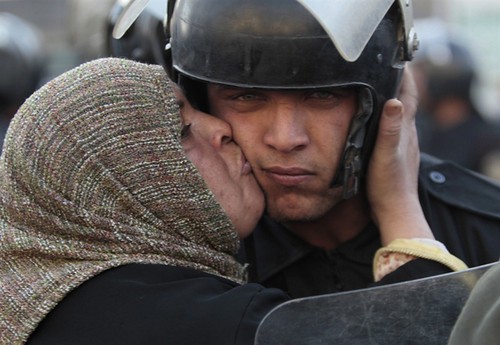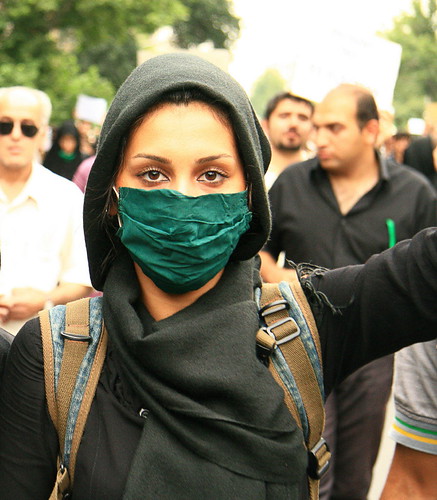Revolution by social networking, the very idea intrigues my inner geek side. What I mean is people using Twitter and Facebook to organize and overthrow a corrupt government, or attempt to do so. I'm not going to pretend to understand it but some random observations ....
I first remember seeing it in the 2009 Green Revolution in Iran. This was highlighted by the Green Facebook page and its 56 youtube videos including the sad death of Nedā on June 20, 2009. The video was uploaded two days later and now has well over one million views. The Green Revolution also included possibly the first ever use of DoS attacks in protests of any kind as opposition supporters attacked government sites and exchanged attack tools on Twitter and Facebook.
Earlier this month saw the Jasmine Revolution topple the President of Tunisia and force him to flee the country quickly followed by this week’s unrest in Egypt. What makes the latter interesting is the government's total shutdown of the internet. Tunisia had cut off certain websites and Iran slowed it to the point it was almost unusable but nobody, not even China, has ever attempted a complete shutdown before. Twitter and Facebook went down on Tuesday (1/25) and in the early morning hours of Friday the entire web was shutdown followed by Egypt's cell phone networks.
In Iran opposition leaders, the middle class, and especially women seemed to grasp there new power but also saw the writing on the wall and choose to fight another day. In Tunisia the Twitter revolution was wildly successful and the president was forced to flee the county. In Egypt it's too early to tell but one has to wonder how long a modern country with modern business can operate in the world without the internet.
"Why in the most vibrant democracy in the world, where engagement and knowledge of the world is probably the most important, why it's not available is one of these things that would take a PhD scholar to understand," said Tony Burman, head of North American strategies for Al Jazeera English on why the free network is not available in the United States.
In some interesting side notes China has blocked the word 'Egypt' from all its search engines and I have to ask; has NBC News's Chief Foreign Correspondent Richard Engel become the new Anderson Cooper?
update - After I posted this I saw the following in the
Washington Post. "Liz Sly reports from Baghdad: "Activists on Twitter are furiously tweeting the dates of the next putative uprisings: Sudan on Jan. 30, Yemen on Feb. 3, Syria on Feb. 5 and Algeria on Feb. 12. 'Arab Revolution Timetable,' say the tweets hurtling among the region's new generation of cyberspace revolutionaries."
update 2/2 - Al Jazeera reported "Social media used in bid to mobilise Syrians for rallies demanding freedom, human rights and the end to emergency law." Supposedly this coming weekend.



